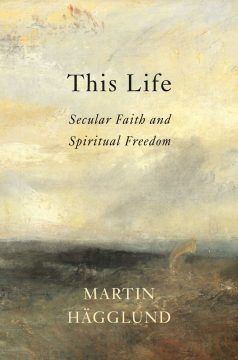William Egginton at The Believer:
 For Hägglund what flows from the recognition that religious faith is incoherent is a revaluation of our relation to our finite lives that he calls secular faith—the faith that life is worth living, for itself, and not for some deferred or transcendent goal. But secular faith leads necessarily to another revaluation. When we realize that our time in this life is finite, we are compelled to ask the most fundamental of questions: what ought I to do with this time? Asking this question is at the core of what Hägglund calls spiritual freedom: “The ability to ask this question—the question of what we ought to do with our time—is the basic condition for what I call spiritual freedom. To lead a free, spiritual life (rather than a life determined merely by natural instincts), I must be responsible for what I do.”
For Hägglund what flows from the recognition that religious faith is incoherent is a revaluation of our relation to our finite lives that he calls secular faith—the faith that life is worth living, for itself, and not for some deferred or transcendent goal. But secular faith leads necessarily to another revaluation. When we realize that our time in this life is finite, we are compelled to ask the most fundamental of questions: what ought I to do with this time? Asking this question is at the core of what Hägglund calls spiritual freedom: “The ability to ask this question—the question of what we ought to do with our time—is the basic condition for what I call spiritual freedom. To lead a free, spiritual life (rather than a life determined merely by natural instincts), I must be responsible for what I do.”
Accordingly, the second half of This Life takes the form of an extended engagement with thinkers who have plumbed the problems of what freedom is and can be under capitalism, from classic theorists of liberalism like Rawls, Mills, and Hayek, to critics of it like Marx and Martin Luther King, critical figures who along with Knausgaard will becomes the heroes of The Life. The gist of Hägglund’s argument here is that the redistribution of wealth called for by almost all left-leaning critiques of capitalism, while desirable, must fall short of the freedom entailed by democracy.
more here.
